Steeped in centuries of tradition yet timely in its themes, Conclave offers viewers a fascinating glimpse into the complex world of papal elections. Adapted from Robert Harris’ novel, the film follows the College of Cardinals as they gather in solemn ritual to select a new leader for the global Catholic Church. Held within the iconic halls of the Vatican, the story plays out like a dramatic House of Cards, as an unexpected death sparks secret deal-making between the most powerful prelates on Earth.
Led by Ralph Fiennes’ conflicted Cardinal Lawrence, over a dozen distinguished holy men assume their roles in history’s smallest yet most influential conclave. Each candidate arrives with supporters and dissenters, bringing eclectic backgrounds and beliefs that reflect the Church’s worldwide reach. An ultra-conservative Italian, a liberal Italian ally, an African hopeful, and more filter ideological divides into a shared quest for Christ’s vicar. Under director Edward Berger’s steady hand, their lively debates and private doubts immerse us in lively drama familiar yet fresh.
Presented as a thriller with no small amount of political intrigue, Conclave offers an exciting what-if scenario of facts blended with fiction. Its world premiere at Telluride welcomed insightful commentary on religion’s place in global events. While cloistered windows bar views within, the film sheds light on history from a perspective both profound and accessible. Guiding viewers through ritual to revelation, its captivating characters ensure the film remains as compelling as the holy mission at its core.
Behind the Scenes Brilliance
One thing that struck me when watching Conclave was how masterfully it transports viewers inside the walls of the Vatican, making you feel as though the story truly takes place within those hallowed halls. And a big part of achieving that is down to the top-notch work done behind the camera.
Director Edward Berger shows deft skill at weaving intrigue even against the constricted setting. By zeroing in on his characters’ faces amid cramped quarters, he sustains a thick atmosphere of secrecy, suspicion, and maneuvering fit for the film’s political thriller DNA. At the same time, key shots sweeping across ornate churches avoid ever feeling claustrophobic. Instead, we appreciate the authenticity.
Cinematographer Stéphane Fontaine likewise deserves praise. Drawing us deep inside scenes with rich, purposeful framing and lighting that brings each performance vividly to life. His roaming camera seems to know just when to linger or launch energetically into the next plot twist. And editors like Nick Emerson keep suspense simmering with punchy cuts between cardinals’ glances.
Pulling the whole production together so seamlessly is the incredible set design. From the Sistine Chapel’s ornate architecture to opulent dormitories, we’re immersed in the Vatican’s history at every turn. It’s clear no expense was spared crafting perfect replicas, transporting us straight to the heart of the ancient rituals unfolding.
Through their collective brilliance, Berger and his crew succeed in making a locked-room thriller pulse with scope. We feel as though unfolding drama might emerge from any graceful arch or hidden alcove of Catholicism’s most sacred sites. Their stellar work brings a contemporary edge to histories normally confined within pages.
Onscreen Shepherds
One thing that’s clear from the get-go in Conclave is that it boasts an astonishing cast of talent. Top of the pile is Ralph Fiennes’ nuanced turn as the tortured Cardinal Lawrence. You really feel his soul-wrenching crisis of faith through furtive glances and whispers to allies like Stanley Tucci’s liberal Cardinal Bellini. Both invoke such raw anguish in their roles.
Other standouts include John Lithgow and Carlos Diehz, imbuing their more divisive cardinals with color. Lithgow makes his power-hungry character delightfully detestable. Meanwhile, Diehz brings remarkable calm amid volatile peers.
Stealing many scenes too is Isabella Rossellini’s rapt observation as Sister Agnes. With poised subtlety, she plays mentor to these men while hinting at disapproval of their flaws. Her wizened eyes seem to miss nothing within church walls.
What’s most striking is how the ensemble depicts spiritual leaders as fully human: hopeful yet fallible, devoted yet disillusioned as an institution changes around them. Each performance feels authentic, avoiding stereotypes.
Through its cast, Conclave also illustrates well the ideological spectrum within the clergy. From Fiennes and Tucci’s open-minded moderates to Tedesco’s frightening traditionalism, it shines a light on truths to which many can still relate. These onscreen shepherds guide viewers meaningfully into the Papacy’s closed world.
The Issues Brought to Light
You can really feel writer Peter Straughan put thoughtful work into Conclave’s script. He adeptly shows the Vatican grappling with divisions that will strike chords with many today.
Straughan deftly portrays different cardinals who could represent positions in current faith-politics debates. But he doesn’t preach; the film starts important conversations instead. Whether it’s women’s roles, sexual abuse cover-ups, or LGBTQ rights, all sides feel authentic.
We also see the very human struggles behind church leadership. Figures like Fiennes’ Cardinal Lawrence bare their private faith crises, showing even men of God have doubts. The script gives space to question and understand, rather than accuse.
Most importantly, the need for Catholicism to evolve with the modern era comes through loud and clear. With global issues like migration in focus, characters push for reforms to keep religion relevant to 21st century challenges. Yet change remains divisive—a balance Straughan captures perfectly.
The film reflects how belief systems must reassess themselves when societies change rapidly. But its even-handed approach highlights our shared hopes beneath surface conflicts within religious communities and beyond. In that sense, Conclave sheds light for all.
Taking a Thoughtful Approach
Director Edward Berger handles Conclave with real care, avoiding easy answers in its sensitive story. He couples tension you’d expect from a thriller with thoughtful exploration of complex themes. Berger keeps viewers engaged on an intellectual level more than a visceral one.
While action unfolds amid high stakes in the Sistine Chapel, Berger never loses sight of religious issues at the film’s heart. We see power struggles, but also humanity in doubting men of faith. Through this balanced approach, he sheds meaningful light on today’s divisive topics, like those roiling American politics.
The film comments subtly on current cultural wars by portraying clashing Vatican ideologies. But Berger doesn’t prejudge any perspective, instead presenting each with understanding. He suggests religion must find unity amid disagreement to stay relevant. And he implies, without sermonizing, that we might gain insight by walking in each other’s shoes.
By prioritizing characters’ dignity over sensationalism, Berger engages our minds instead of passions alone. He brings political drama to an elevated discussion and gives comment on world events through a discerning, though-provoking lens. In doing so, Conclave provides as much reflection as diversion.
The Moment of Truth
One scene in Conclave that really stood out for me was the final vote revealing the new Pope. The film builds so much intrigue around this ritual, you can’t help but feel swept up in the suspense.
As cardinals arrive somberly dressed in the famed Sistine Chapel, Berger lets shots linger on each thoughtful face. The space feels cavernous yet intimate. We experience the moment not as observers but alongside these faithful men, sharing their weight of history.
Straughan’s script teases clues that several could emerge victorious, keeping viewers guessing to the last. Meanwhile, subtle performances show cracks in the façades of even front-runners like Fiennes as private hopes and doubts sneak through.
When flames finally roar and billowing smoke announces a decision, Berger rewards our patience with a tension nobody sees coming. Plus a reaction from Fiennes so raw, it gives me goosebumps just thinking of it. Through his camera’s unfailing eye, we feel invested in the outcome like never before.
This pivotal scene shows why Conclave stands apart. Where some might rush through ceremony, it draws out ritual richness. Combined with top-shelf acting, the effect pulls back the church veil rarely seen. We glance at reality that moves both hearts and minds long after credits roll.
A Thought-Provoking Drama Worth Experiencing
Whether you’ve got a passion for theology or just enjoy well-crafted narratives, Conclave delivers an absorbing story that stays with you. It tackles complex issues facing faith today with care, drawing out our shared humanity beneath surface divides.
Through nuanced performances and intimate access to ritual, Berger treats both believers and non-believers to fresh insights into history’s most influential church. Intelligent themes on doubt, change, and leadership feel acutely relevant as ever.
While thrilling twists keep interest high throughout, it’s the persisting reflections after that mark Conclave as truly special. Simply put, there’s more to chew on here than your average political drama.
Not since Gandalf has a smoke signal generated such mystery or cliffhangers as those gracing the Vatican’s chimney here. Whether you see clues coming or not, Conclave rewards repeat viewings that peel back ever more layers.
So whether you’re hoping to understand society’s divisions better or just seeking top-class entertainment, this drama intrigues and enlightens on multiple rewatches. Fans of prestige television would be remiss to overlook it.
The Review
Conclave
With absorbing intrigue, stellar acting, and thoughtful exploration of issues shaping faith today, Conclave delivers a cinematic experience worthy of its weighty subject matter. Under Berger's steady hand, it brings new layers of understanding to ritual and debate that will linger long after its revelations.
PROS
- Nuanced performances, particularly from Fiennes
- Thoughtful examination of contemporary religious issues
- Engrossing plot and twists keep viewers guessing.
- Authentic and rich depictions of Vatican rituals
CONS
- Might move slowly for some during set-up of characters/factions
- Could prompt deeper debate around some topics shown








































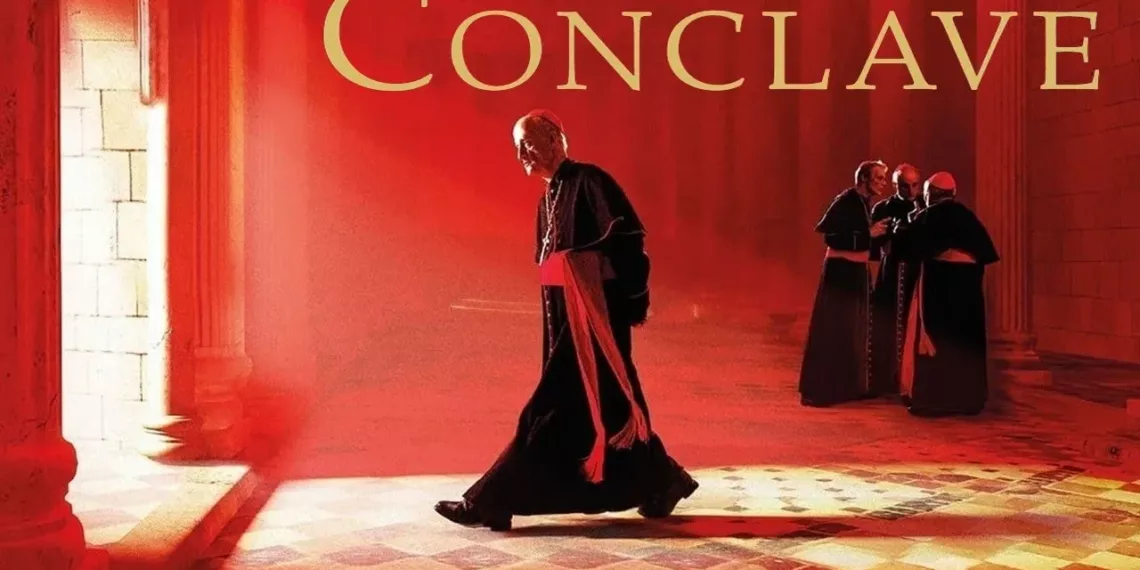
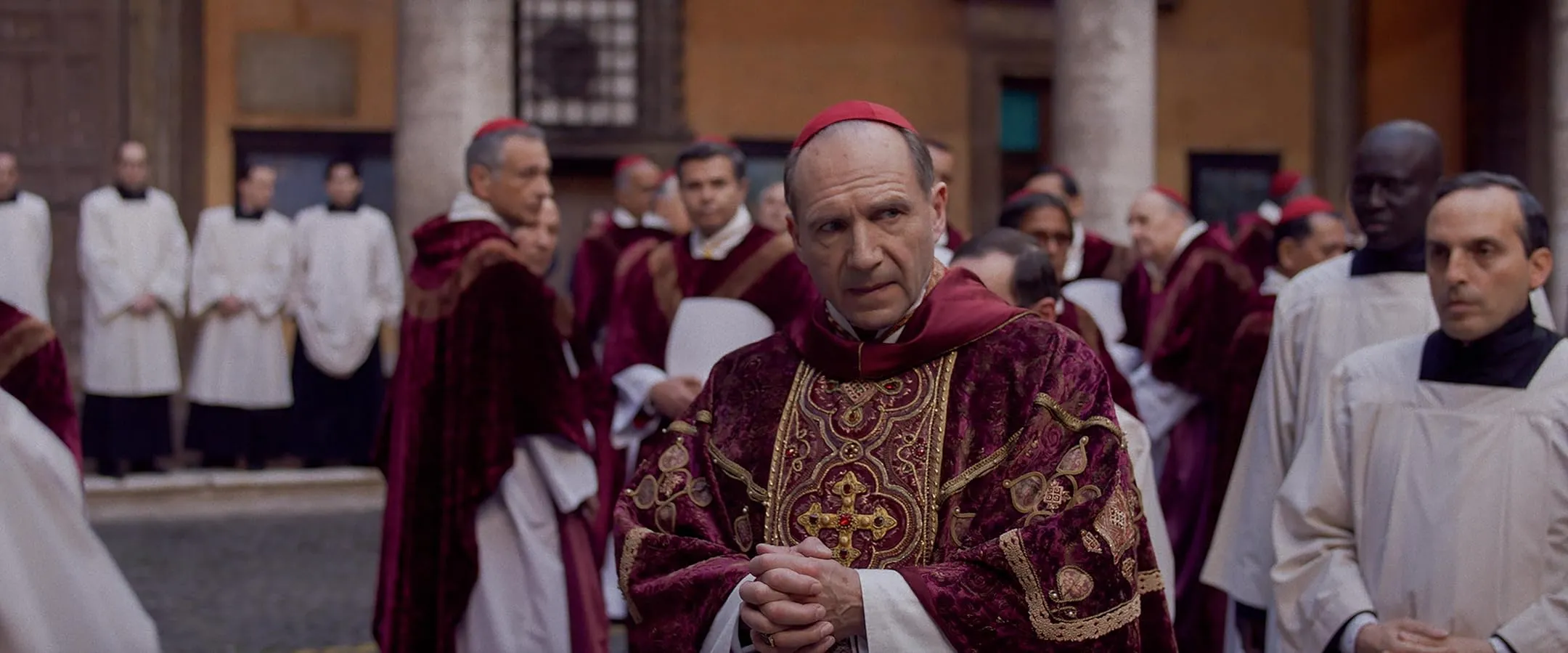
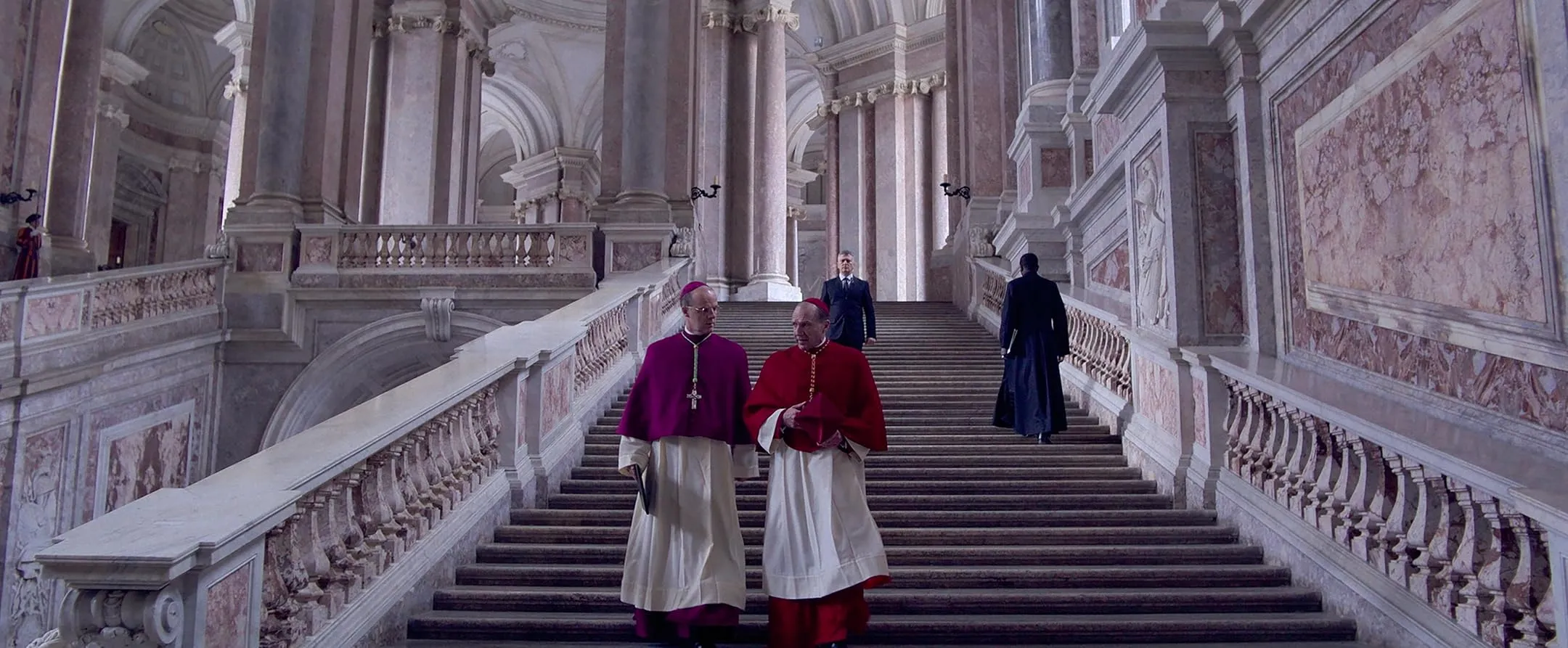
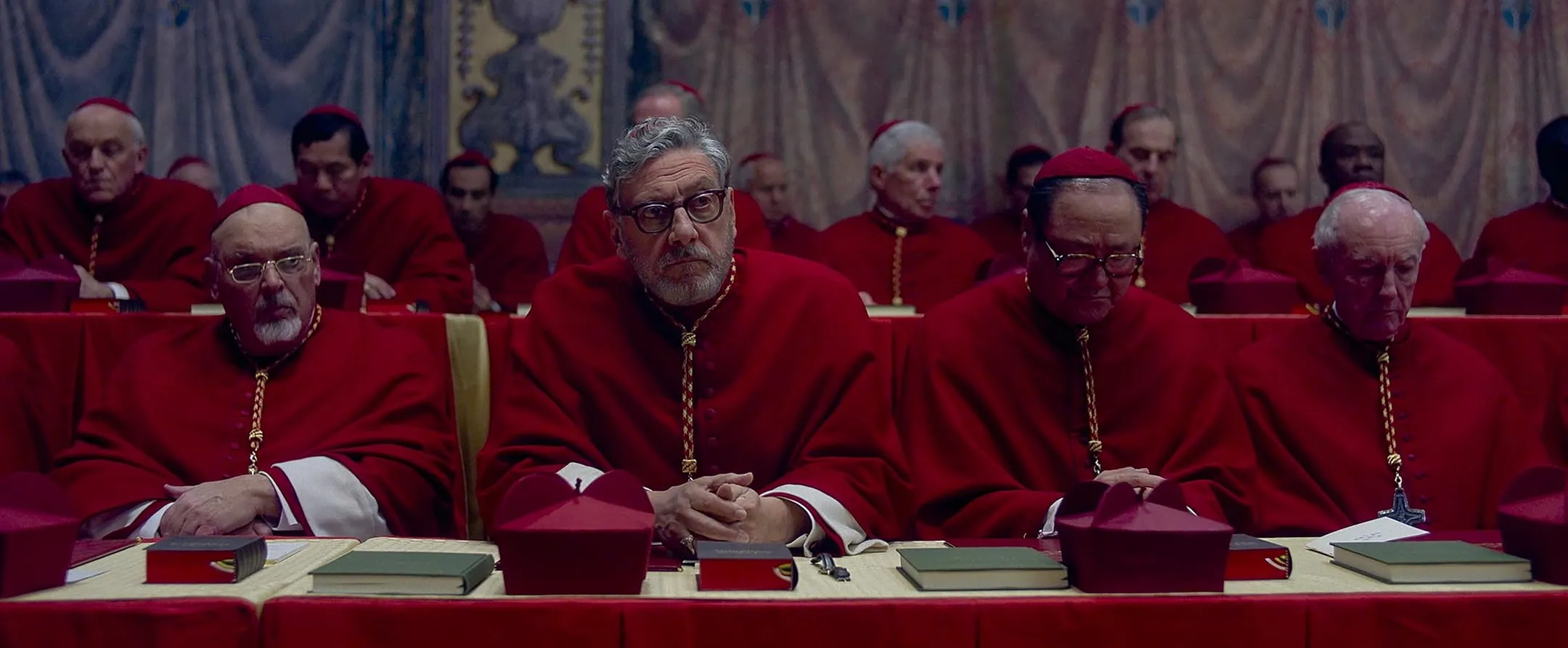
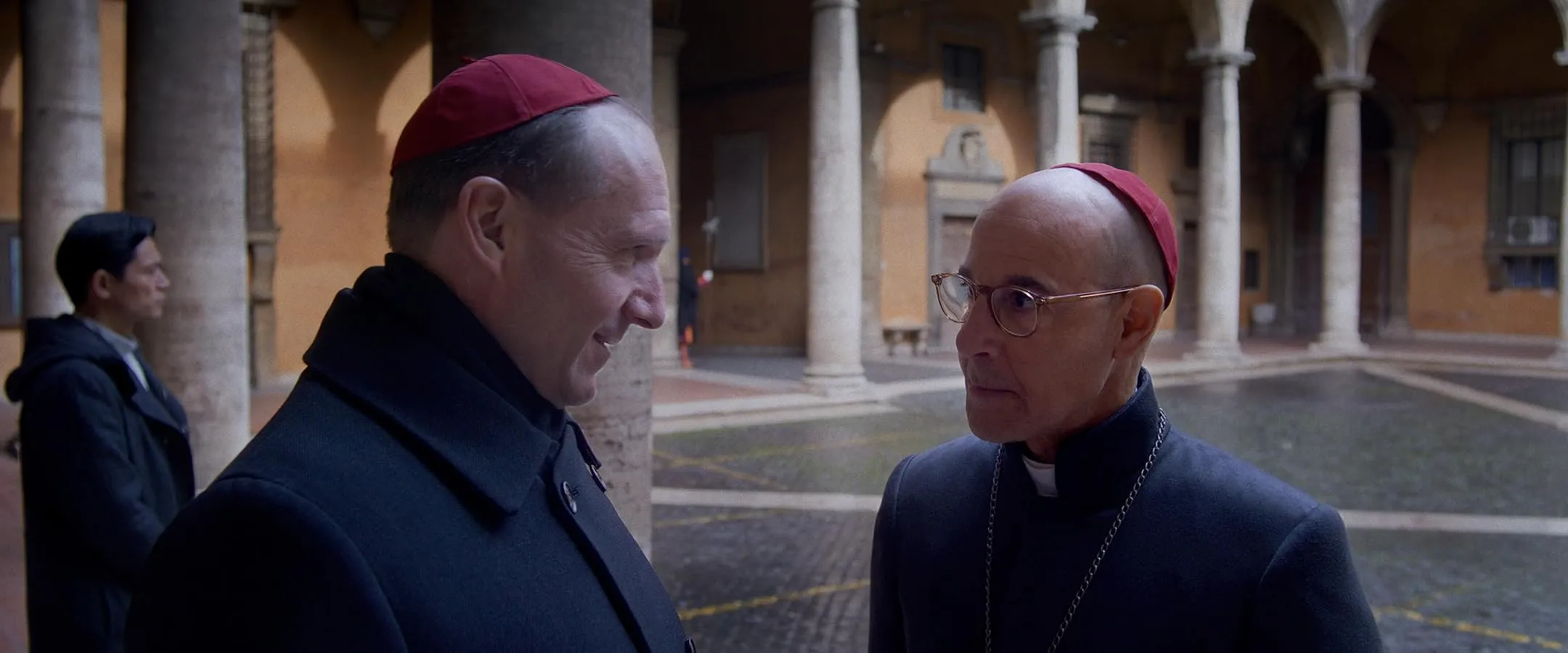
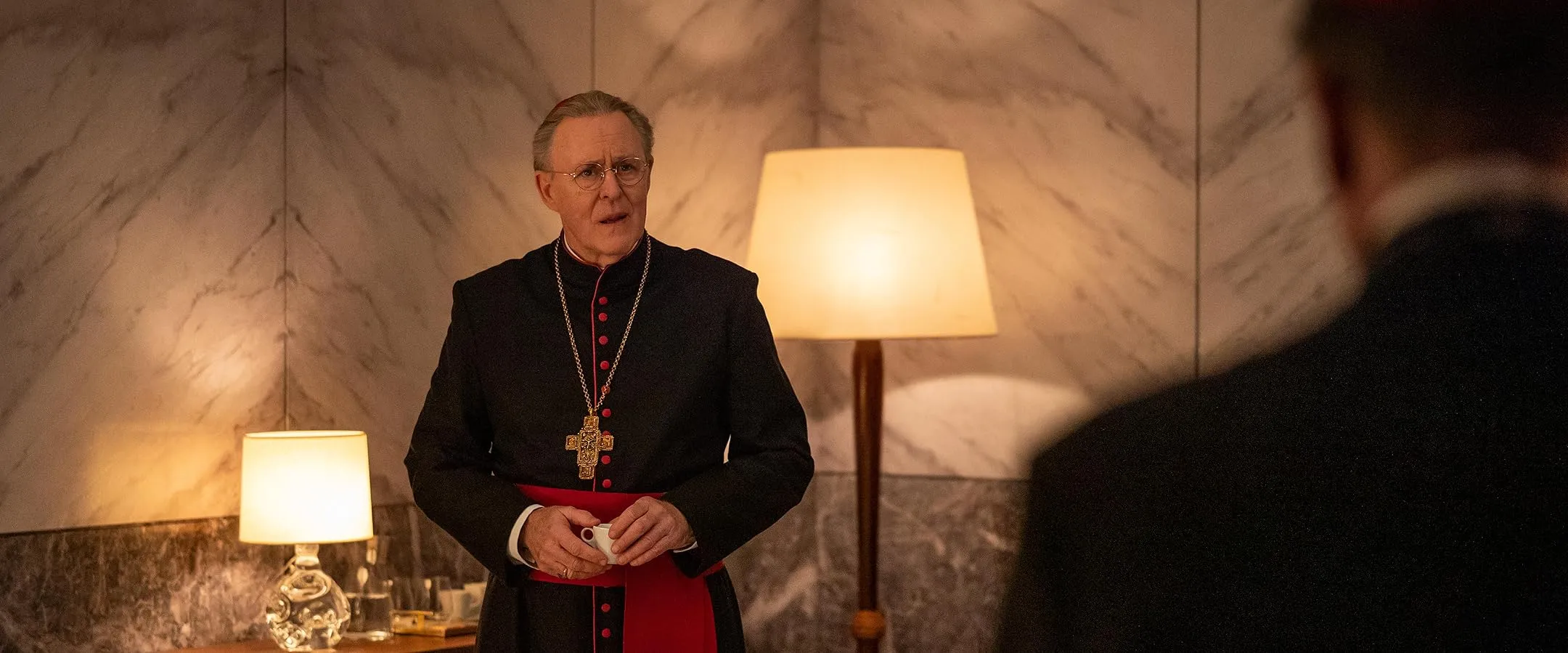








Discussion about this post